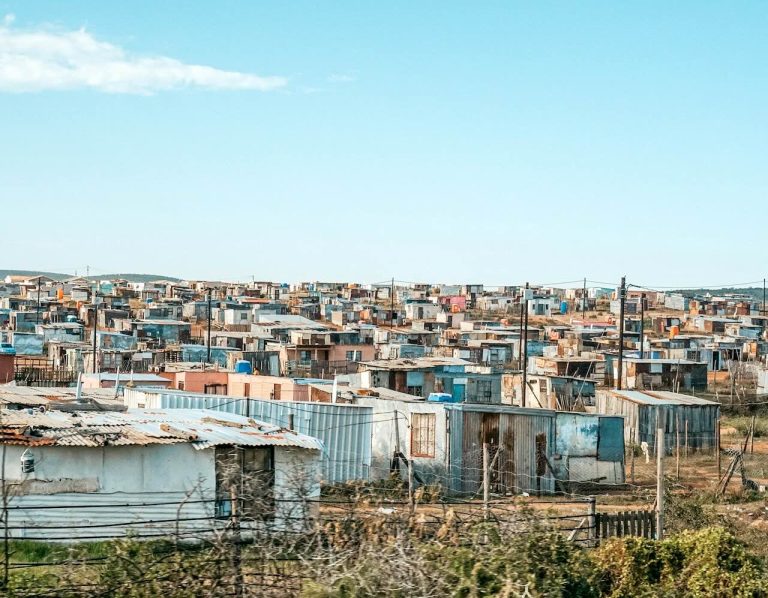
COP29 calls for more than $1 trillion in annual climate compensation
A major theme of COP29 was that the world should set a “new collective quantifiable goal” in which successful countries pay more than $1 trillion a year to poor countries to: [some emphasis, links added]
1) compensate for climate-related damage, and
2) Build a new “green energy” economy. In other words, climate compensation.
 What would $1 trillion in annual climate compensation mean to you and your family?
What would $1 trillion in annual climate compensation mean to you and your family?
Assuming that high-income households (>$50 per day) pay this amount on average, Your household must pay more than $5,000 in climate compensation taxes each year!
The basis for climate compensation is Two wrong assumptions:
- Free, wealthy countries are making the world worse for poor countries through their use of fossil fuels.
-
The poor world's main problem is dealing with climate change, and wealth transfers will help them solve this problem.
But liberal fossil fuel states make life better for poor countries
Free, wealthy countries are not making the world worse for poor countries through their use of fossil fuels—They've done better.
observe what happens Global life expectancy and income As fossil fuel use increases. Everyone's life gets better.

The rich world's fossil fuel use improves life around the world because Using fossil fuel energy is incredibly productivewe have 1) Make various goods cheaper and 2) able to engage in life-saving assistanceespecially in the following areas Food, medicine and health facilities.
Without the rich world's historical use of fossil fuels, there would be no super-productive agriculture to feed eight billion people, no satellite-based weather warning systems, etc. and Most people in poor countries wouldn't even be alive today.
Liberal fossil fuel states shield poor people from climate impacts
Fossil fuel use in the rich world is particularly good for the climate sector.
Over the past 100 years, Global climate-related disaster mortality has dropped by 98%.
A big reason is saving millions of lives from drought through fossil fuel crop transport.

“Climate compensation” movement Ignores the fact that the rich world's fossil fuel use makes life better in the poor world, including making it safer from climate impacts.
This allows it to pretend that the poor world's main problem is dealing with rising carbon dioxide levels.
The problem of a poor world is poverty, not rising CO2 levels
The main problem in a poor world is not rising CO2 levels, but poverty–This is This is caused by a lack of freedom, including the lack of freedom to use fossil fuels.
Poverty makes everything worse, including the world's huge natural climate dangers and any dangers from more carbon dioxide.
While the rich world does not increase the climate danger of the poor world—we have reduced it—the poor world does More threatened by climate than rich countries.
The solution is to make the poor rich. This requires freedom and fossil fuels.

Escape from poverty requires freedom and fossil fuels
Every country that escapes poverty does so through policies that support freedom—especially economic freedom.
This is how resource-poor places such as Singapore and Taiwan prospered. Resource-rich countries like Congo are in trouble due to lack of economic freedom.
Even China, which is not free in many aspects (including inadequate protections against pollution), has greatly improved its living standards through economic freedom, especially in the field of industrial development. China is now much freer than the United States and Europe in many aspects .
one critical freedom Participate in the increasingly prosperous use fossil fuels.
Fossil fuels are a uniquely cost-effective energy source that provide Providing low-cost, reliable, versatile and scalable energy to billions of people in thousands of places.

again and again Countries have increased prosperity, including protection from climate impacts, through economic freedom and fossil fuels.
Over the past four decades, China and India have increased their use of fossil fuels sevenfold, allowing them to industrialize and prosper.

for poorest people in the world More prosperous, more secure and protected from climate impacts, They need more freedom and more fossil fuels.
this The “climate reparations” movement seeks to deny both of these points.
this wealthy world The message should be sent to the poor world that economic freedom is the path to prosperity, and Encourage the poor world to reform its cultural and political systems to embrace economic freedom—including fossil fuel freedom.
Our leaders are doing the opposite.
Climate reparations offer dictators rewards for taking away fossil fuel freedoms
Rather than promoting economic freedom, including fossil fuel freedom, Wealthy climate reparations advocates like Antonio Guterres are proposing to entrench illiberal regimes go through Pay off their dictators and bureaucrats to eliminate fossil fuel freedom.
This is disgusting.

this biggest victim “Climate compensation” will be poorest country in the worldIts dictators will be bribed to prevent fossil fuel freedoms that have made not only the United States and Europe, but also China and India, much more prosperous.
this biggest beneficiary “Climate compensation” will be Chinawhich is already It emits more carbon dioxide than the United States and Europe combined. (Though less per capita.)
When we whip ourselves and mutilate ourselves, China will Using Fossil Fuels to Seek Becoming a World Superpower.

The second largest beneficiaries of “climate compensation” will be corrupt do-gooders who will Add anti-fossil fuel provisions to “reparations” dollars and dictate how they are spent——It will definitely These include spending large amounts of dollars on unreliable Chinese-made solar panels and wind turbines.
Leaders must reject reparations and support fossil fuel freedom
We need leaders in the United States and Europe to proudly:
- Support the free world's use of fossil fuels as a huge benefit to the world, including climate security.
-
Encourage the poor world to embrace economic freedom and fossil fuels.
Tell your reps to do both.
Read more energy talking points
